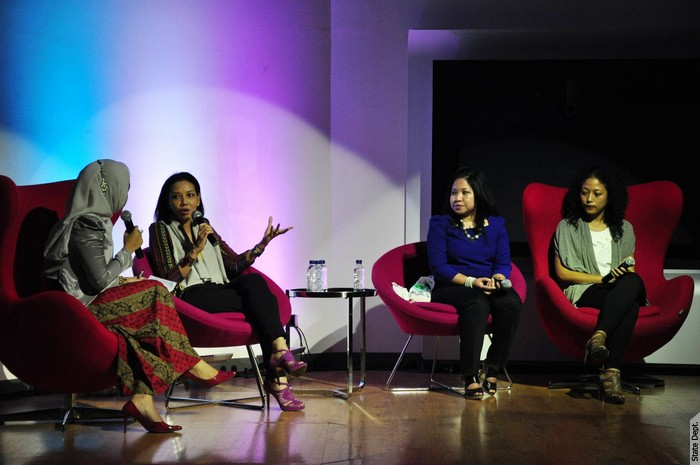Larry Scheinfeld: Women Entrepreneurs Are Leaning In Too
Women supporting women has been a trend since The “Lean In” Movement began in 2013, as a result of Sheryl Sandberg’s book with the same title. Sandberg’s words have women everywhere re-evaluating their leadership approach and role in the corporate world, by addressing challenges head on, and focusing on what they can do rather than what is presumed they can’t. The movement has led to a revolution in which women have provided one another support through community, trust, and circles—small groups that meet monthly to encourage one another in an atmosphere of confidentiality and trust, with the ultimate goal of changing the trajectory of women and creating a better world for everyone.
Sandberg’s book is predominately focused on the corporate world, but this begs the question raised by journalist Kathy Caprino in her Forbes article: “I myself chose to leave my corporate life forever […] so, have I ‘leaned out?’” Put differently, how is the Lean In movement impacting the entrepreneurial world, for which so many women have left the corporate world behind? According to research conducted by Sahil Rena in the Harvard Business Review “[…] in venture capital-financed, high-growth technology startups, only 9% of entrepreneurs are women.” Despite the lag in growth of female start ups, there is a promising trend that reflects exactly what the power of the Lean In movement is all about—women supporting women. Sahil concludes with the idea: “A crucial step to helping more female entrepreneurs succeed may be to encourage more women to join venture capital firms.” In this example, it comes down to the brass tax: Funding.
Women aren’t settling for verbal recognition or title changes. Understandably they want—and frankly need in order to be successful—money, something that is recognized worldwide as a measure of success. But less and less is it about what each individual woman can do for herself with that money and more about how those funds can be used to develop other ideas and ventures by women. High-powered women are looking outward to help create more high-powered women—a ripple effect that’s creating a culture and community of funding, much the way the Lean In Movement has worked in the corporate world. Take Glassbreakers, for example, an entrepreneurial venture started by co-founder Lauren Mosenthal and Eileen Carey. They’ve created a peer-mentoring platform for companies that want to retain and promote women, with a goal of “mitigate[ing] the effect of female professional attrition on younger generations of women coming up,” writes Newsweek. It turns out that the greatest supporters of women advancing in the entrepreneurial space are, in fact, women. And further, these situations actually create the greatest likelihood of success.
Women at all levels are making a place for themselves. This is evident in looking at startups like Glassbreakers, and their potential future clients who see its value, including technology behemoths like Ben Parr, founder of the DominateFund and formerly of Mashable. He said to Newsweek, “I’ve been talking to women about this problem for years”. It is clear that attention is being given to this issue and the trajectory is shifting to make sure it changes. Women like Mosenthal and Carey are at the forefront of this movement, ensuring these efforts will continue even after they’re gone. All over the globe and from several different backgrounds, women are joining the Lean In movement and challenging themselves in ways they haven’t in their career paths previously, to create change on a global scale. Reese Witherspoon describes how terrified she was when asked to be a spokesperson for Avon: “It was going to be my toughest role yet, because it had to be entirely, authentically me,” she writes on the Lean In website. These trends indicate, however, that women everywhere are gathering the courage to step out of roles they’ve been asked to play by men or organizations, and into their true beliefs and aspirations as people.

